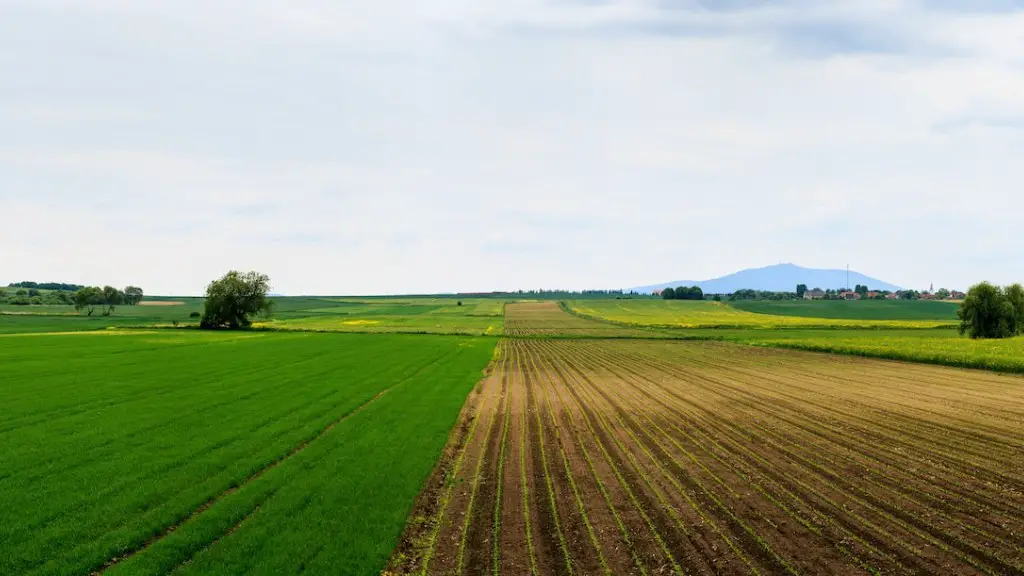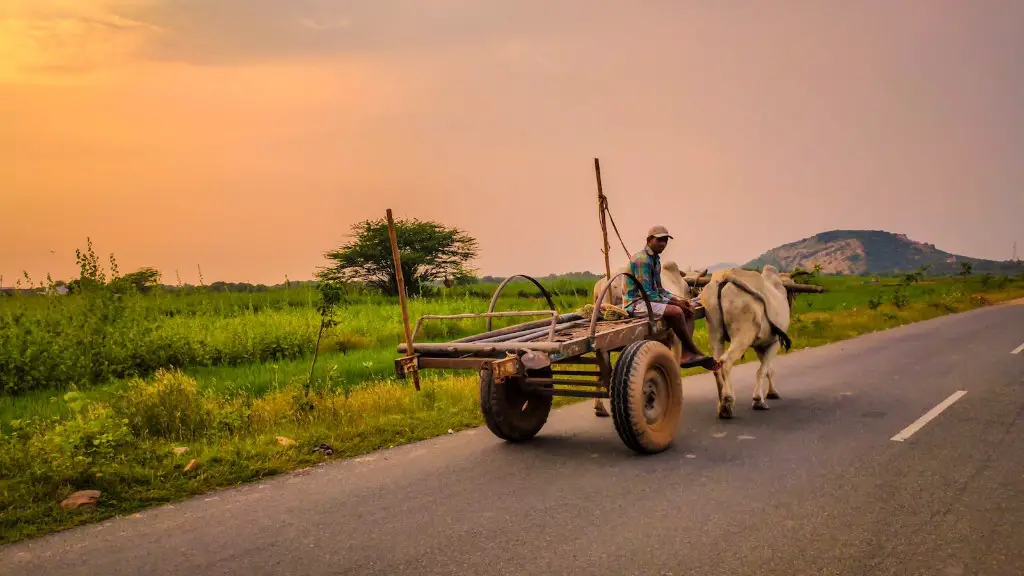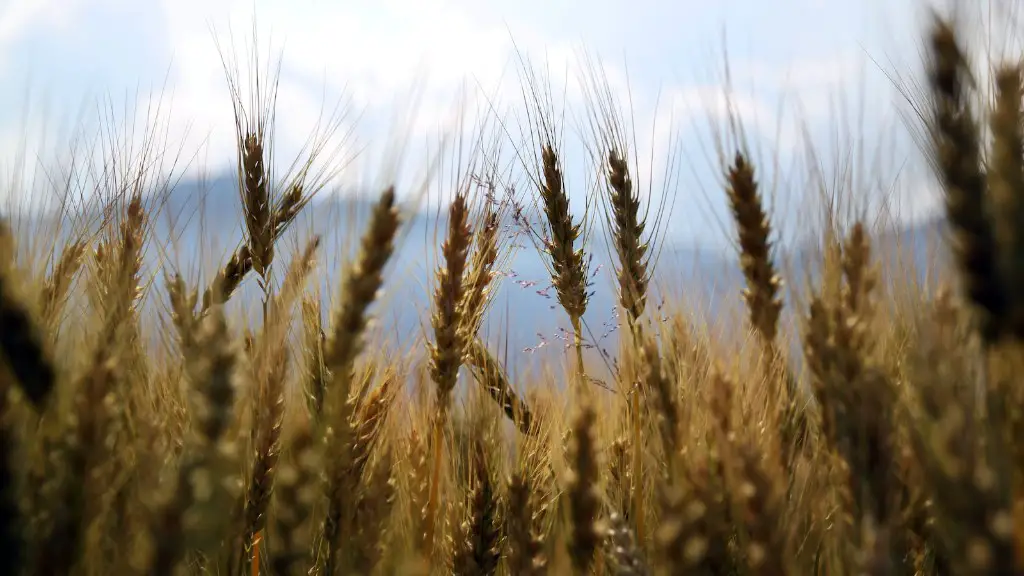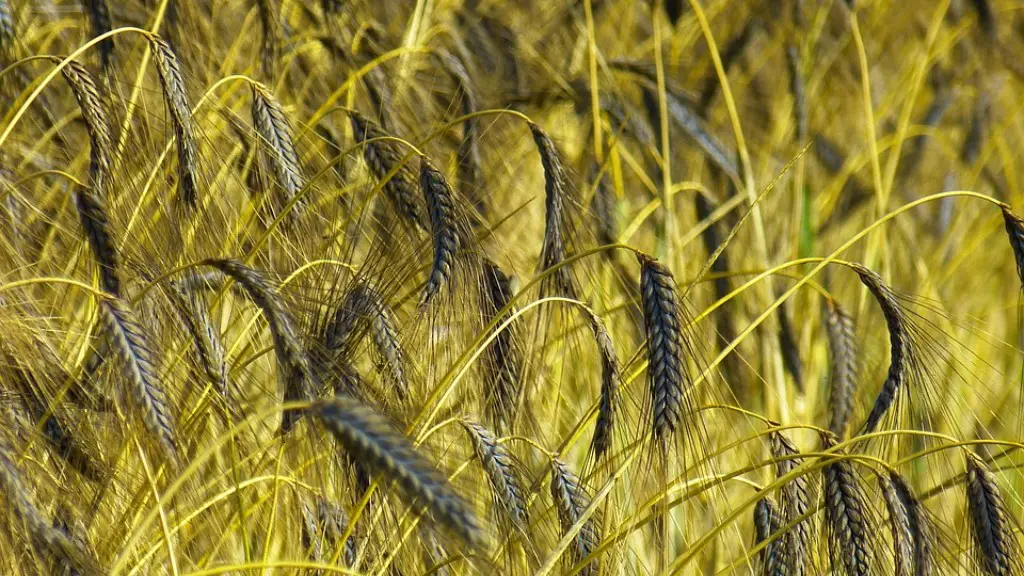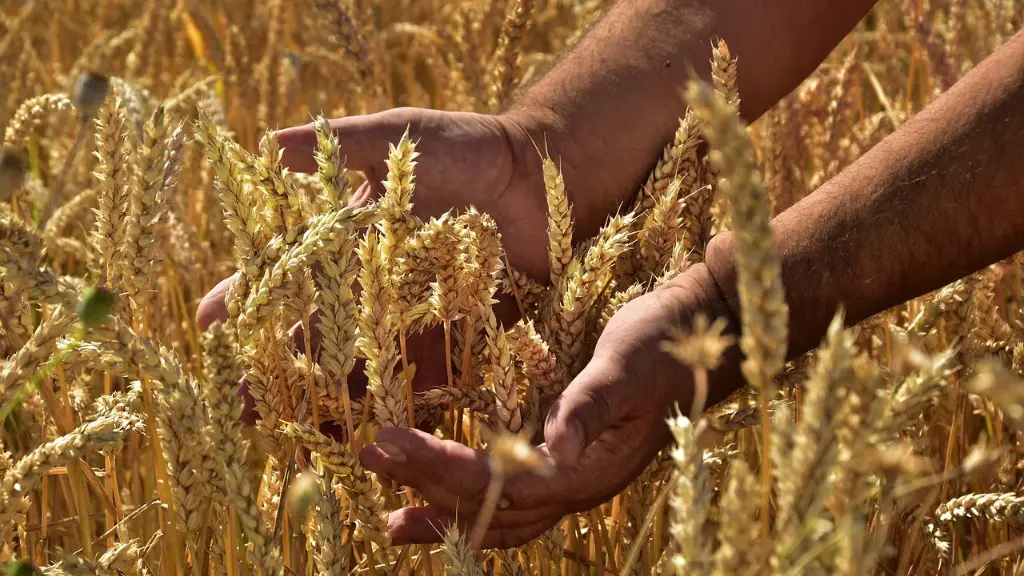Agriculture is an essential industry for global food security, not to mention supporting millions of jobs worldwide. It is also a major contributor to greenhouse gases due to the intensive land use, fertilizer production and cattle farming systems employed. Estimates vary depending on the source, but globally agriculture is responsible for between 15-20 percent of total global carbon dioxide emissions. This is significant, considering agriculture plays such an important role in people’s lives.
Agricultural practices involve large amounts of inputs, such as fuel and fertilizers, both of which ultimately break down into gases like carbon dioxide. These chemicals are released into the atmosphere, and contribute to the overall global warming trend. Other sources of greenhouse gases from agricultural production include burning of biomass in agricultural land, rice fields, methane from cows and nitrous oxide from fertilizer. All of these activities lead to increased levels of greenhouse gases in the atmosphere, which in turn exerts additional warming effect on the environment.
Furthermore, agricultural production also has a direct impact on the climate through the conversion of natural habitats for planting and grazing, resulting in large areas of disturbed ecosystems. This reduces the amount of carbon stored in land areas, and leads to increased levels of carbon dioxide in the atmosphere, further contributing to global warming.
Agricultural practices also contribute to climate change in other subtle ways. For example, intensive land use for growing crops has resulted in weakened biodiversity and has contributed to global desertification and depletion of soil fertility. This in turn contributes to decreased food security and potential famine, as agricultural production becomes harder to sustain. In fact, it has been estimated that global land use change is responsible for 11–15 % of all global greenhouse gas emissions.
Overall, while it is difficult to accurately estimate the exact amount, it is clear that agriculture plays an significant role in climate change. In order to reduce these impacts, it is essential that farmers and policy makers work together to develop strategies to improve agricultural efficiency and reduce the environmental impacts, ultimately leading to a more sustainable future.
Agriculture and Greenhouse Gas Emissions
Agriculture contributes significantly to greenhouse gas emissions which are a major factor in climate change. Carbon dioxide is the main green house gas emitted from the agricultural sector, mainly from fuel emissions from processing and storage of food, and inputs such as fertilizers, as well as burning of biomass and methane from livestock farming. This in turn decreases the amount of carbon stored in land areas, and leads to increased atmospheric concentrations of carbon dioxide and other greenhouse gases.
Besides carbon dioxide, agriculture is also responsible for nitrous oxide emissions from fertilizers and manure, and methane emissions from livestock, paddy fields and biomass burning. All these contribute to rising atmospheric concentrations of green house gases, resulting in a warming of the atmosphere which further contributes to climate change.
Emissions from agriculture also lead to other problems such as acid rain, smog and water pollution, all of which have damaging consequences for the environment and our health. This means that agricultural production has a direct and indirect impact on climate change, and it is important to take this into consideration when designing and implementing agricultural policies.
Agricultural efficiency and sustainable practices are important when trying to reduce the environmental impacts of the sector, and can be achieved through changes in technology, policy and management. These changes would have positive effects not only on reducing greenhouse gas emissions, but also on food security, biodiversity, soil fertility and water quality.
Agriculture and Land Use Change
Agriculture is not only responsible for greenhouse gas emissions, but also plays a major role in land use change which also contributes to climate change. Land use change commonly refers to the conversion of forests and other natural land areas for agricultural production. Apart from carbon dioxide emissions from burning of biomass, this process also causes the release of other gases such as methane and nitrous oxide, as well as reducing the amount of carbon stored in land areas.
Land use change also leads to other environmental problems such as biodiversity loss, water pollution and soil degradation, all of which affect the capacity of the land to absorb CO2, thus further contributing to climate change. Additionally, as land is converted for agriculture, potentially more fertilizers are used and this has a direct impact on pollution, not to mention increased emissions from transport and storage of food.
Overall, land use change is a significant contribution to climate change, and it is essential that policy makers take this into account when making decisions about land management. This means taking into consideration potential environmental impacts, cultural values, land rights and other factors in order to find the most sustainable solutions for land use.
Agriculture and Climate Change Adaptation
In order to reduce the impacts of climate change, it is essential to take into account the unique needs of the agricultural sector and the best ways to ensure the well-being of farmers and their livelihoods. Firstly, this means investing in climate-smart practices such as agroforestry, soil conservation and efficient irrigation systems. Second, it involves developing resilience and adaptation strategies to help farmers cope with extreme weather events and changing conditions. This could include risk management plans, crop diversification and improved access to information and resources.
It is also important to provide wider access to finance, technology and markets in order to enable farmers to have greater control over their production and to put in place mechanisms to protect their livelihoods. This means investing in infrastructure such as irrigation systems, improved roads, and access to electricity, as well as training and education. All these measures can help to ensure that the agricultural sector is better prepared for the impacts of climate change and is able to continue producing food for an ever-growing population.
Agriculture and Climate Change Mitigation
Agriculture is a major contributor to climate change, and there is much that can be done to reduce emissions from the sector, as well as land use change. Firstly, this involves introducing improved technologies, such as more efficient irrigation systems, alternative energy sources and precision agriculture, which can help to reduce emissions as well as increase efficiency and production.
It is also essential to promote sustainable practices such as agroforestry, crop rotation, sustainable water management and organic farming methods, all of which can help to reduce emissions as well as improve crop productivity, soil fertility and biodiversity. Additionally, reducing food waste could also have positive impacts on greenhouse gas emissions, especially when it comes to products such as meat, dairy and seafood.
Finally, it is important to ensure that policies and investments are in place to promote sustainable and efficient agricultural practices. This means investing in research and education, as well as providing access to finance, technology and markets, to enable farmers to make the transition to more sustainable practices and reap the economic and environmental rewards.
Conclusion
In conclusion, it is clear that agricultural production is a major contributor to climate change, both directly through emissions of greenhouse gases and indirectly through land use changes. In order to reduce these impacts, it is essential to work towards improved efficiency, sustainable agricultural practices and adaptation strategies, as well as promoting access to finance, technology and markets, in order to enable farmers to better manage the impacts of climate change and continue producing food for an ever-growing population.
